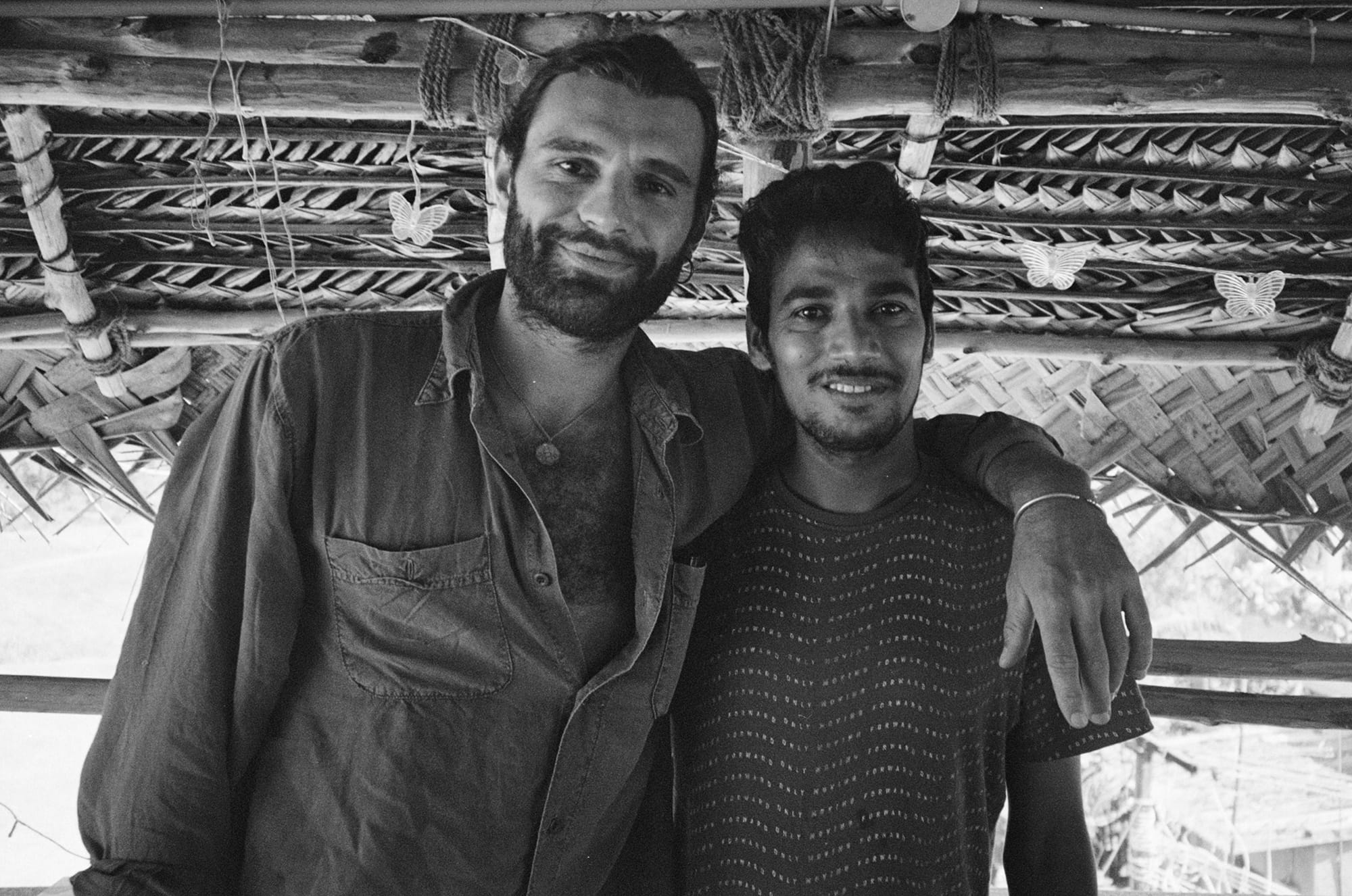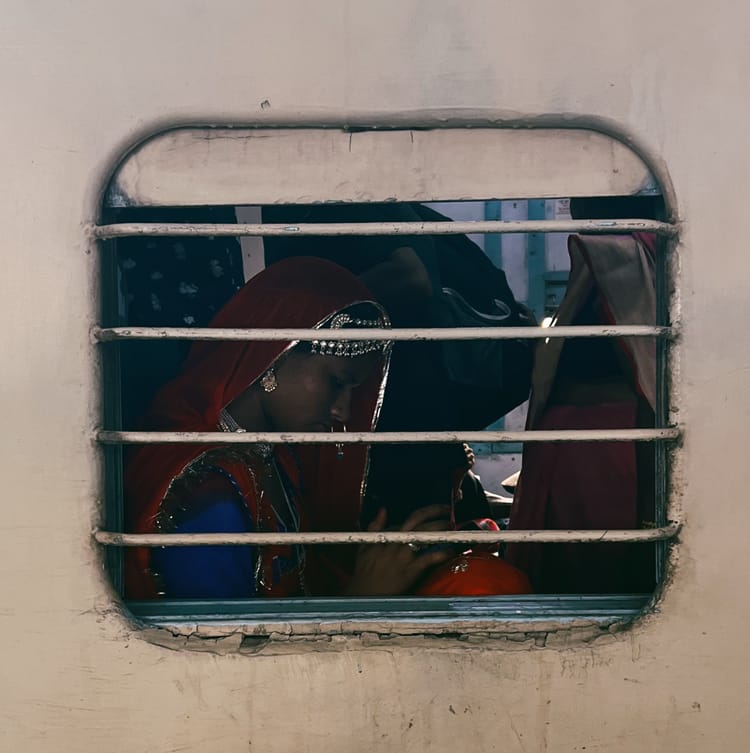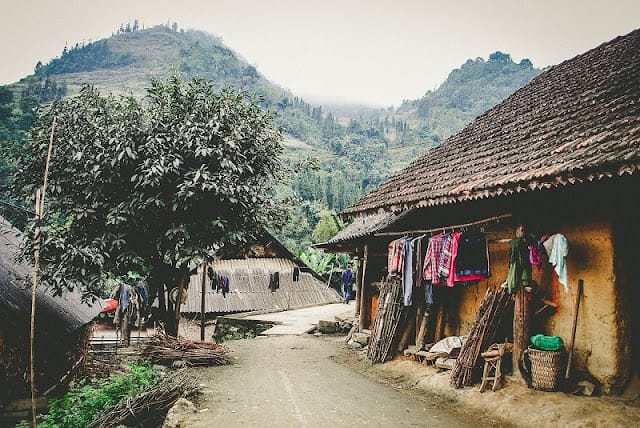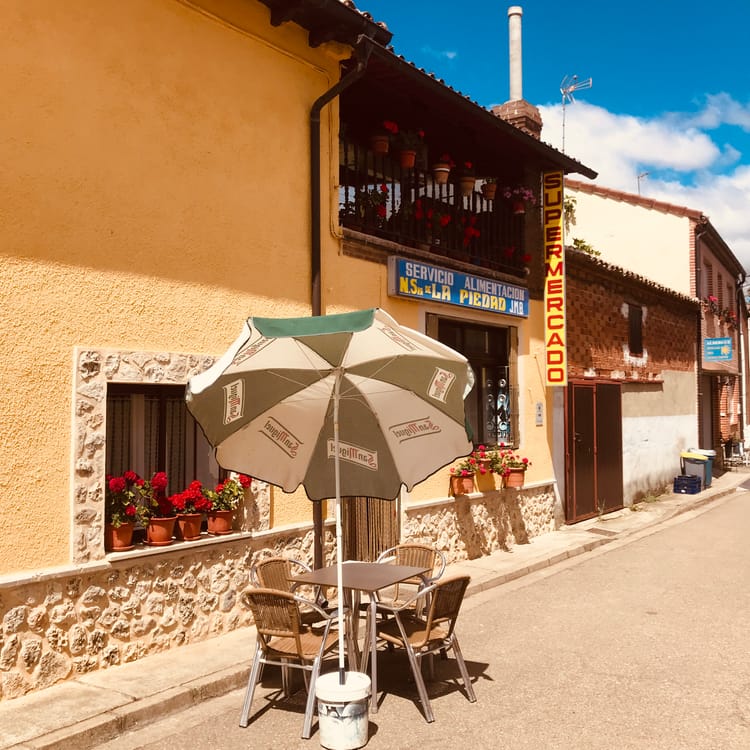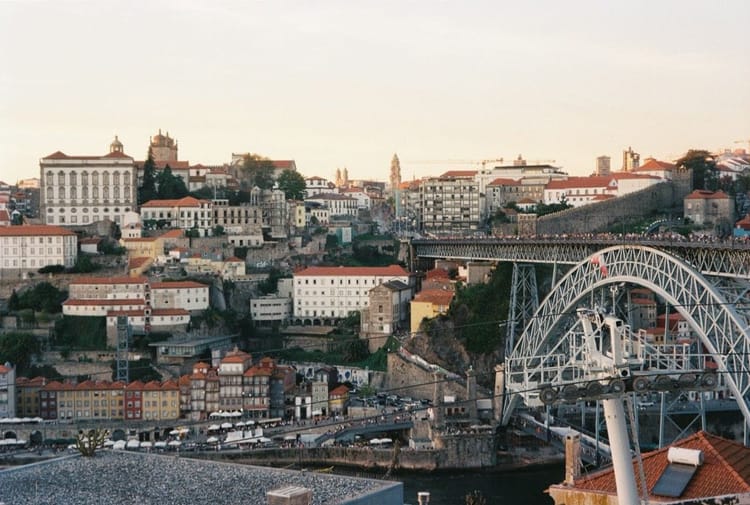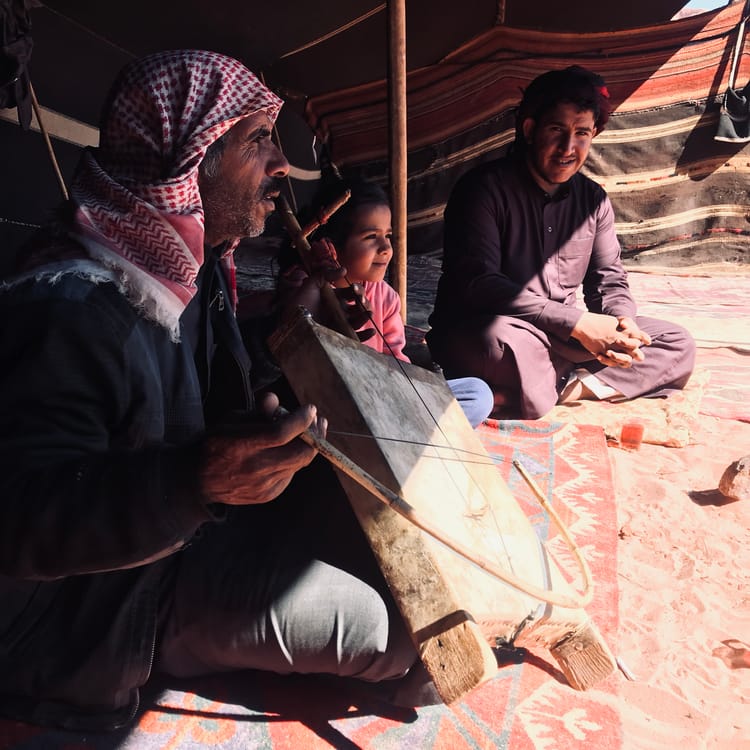Rajasthani Afternoons
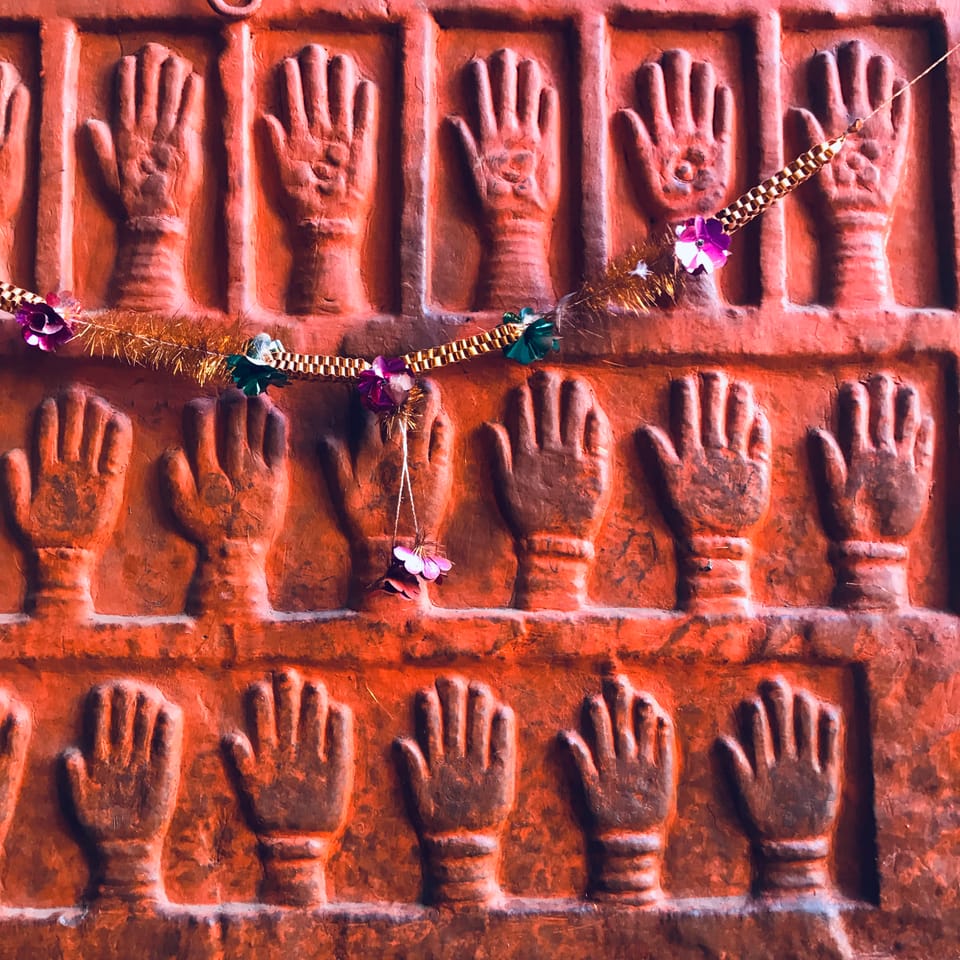
I met Anuj in an ashram cafeteria in Rishikesh.
He was holding court in an Adidas tracksuit, gathering followers as his infectious laugh bellowed provocatively across the otherwise austere, murmuring hall.
Charmingly loud and obscene, he was as hedonistic and profanely disinterested in conventional spirituality as a Hindu gets, having only wound up in the ashram because his French girlfriend was teaching yoga.
Bound to Rishikesh for a week, he'd spent his days getting high with backpackers in the nearby town and gorging himself on the cheap lentils, amassing daily crowds with his revelry over long lunches.
I'd arrived at the Ashram after a spontaneous night bus with Alessia, an Italian woman I'd met in Dehli. Having been fascinated with Vedanta for years, the invitation to join her plans felt like a calling. It had been a wonderful experience, but I had spent most of my days reading books with my feet in the freezing Ganges.
Within a day of meeting Anuj, we'd slipped out of the Ashram gates and joined the "other" Rishikesh. The part of town where the heathens bed and bred under endless clouds of Hindu Kush.
It was my kinda place, and, as far as I was concerned, any true spirituality remaining in those ancient Gangic foothills lived and breathed in the unashamedly honest and unfiltered moments between those hedonistic walls.
The rest was hypocrisy and a glorified Ponzi scheme.
Proven by the nightly rivers of "celibate" ashram girls hurriedly traversing the trail between the towns. A stream of white linen and giggles. Yoga teachers, spiritual seekers, born-again-yogis, all slipping out to spend an evening fornicating with adventurous young men in 5-dollar-a-night guesthouses. Drip drying in the glow of cheap candles and nag champa before returning for sunrise satsung.
It was proof of the deification of half-baked and cherry-picked philosophical concepts neatly packaged and sold to naive Western seekers enthralled by the prospect of an eat-pray-love moment with a squeaking, safron-clad "master." A jig perfected over the 60 years since the four Liverpool lads arrived on the Gangic shores.
But Anuj would have none of it.
Well-versed in the mythological landscape of his ancestors, he despised the contrived export of the Hindu pantheon, instead living by a less optical yet deeply moving connection with his notions of Hindu divinity.
Having never remotely touched the Vedas, his religion was a witty, reasonable fusion of Indian logic and Hindu technicolor. He loved the vibrance of his culture and didn't seek to carve a higher path through its teachings.
After listening to a famous wandering guru from Camden and being turned off gurus for life, we hopped a night bus to Agra, where I'd been invited to stay with his sister and nephew. I spent the ride curled in the fetal position, tensing my sphincter in convulsions as waves of chills ricocheted around my body like a pinball.
His sister lived in a crumbling, dilapidated house with her teenage son. It was a dark, depressing existence. A traditional Hindu wife, she was housebound and forever alone, permitted only to leave her domestic chains to procure necessities.
My stay showed me the true, often invisible extent of female oppression in the Indian subcontinent and much of the world. Despite this, she was gracious, kind, generous, and happy to have me there, as peculiar as I must have seemed. I suppose I was as interesting to her as she was to me. A brief distraction in an otherwise mundane and suffocating life.
We visited the Taj and wandered the local streets endlessly. Already the transformation of life in India with an Indian beside me was astounding. I was no longer a wandering wallet: Anuj was a talismanic guardian, attracting endlessly bizarre interactions. I was through the looking glass.
Alessia joined us on our last day, where we had a boozy night at a shithole of a "Delux" rooftop bar. I woke up to Hindi screaming, bouncing off the thinning wallpaint. Anuj was getting rinsed by his sister, who'd (rather inaccurately) suspected we'd had a threesome with some foreign कुलटा in her marital bed.
Safe to say, we parted on shaky ground.
Now a trio, we boarded a train for Rajasthan, that majestic, otherworldly kaleidoscope of color and chaos. There's nothing like a 3rd class train ride to experience the lifeblood of the Indian people. I hung out the open doorway, pulling myself inside the carriage just in time to avoid each steel post dotted along the tracks.
Chai? Yes. Gulab Jamon? Yes. The body odor of 300 profusely sweating Indian men precariously ratling through Rajasthan at 200 km an hour? Why not.
You either sink or swim in India. You dive in or don't bother.
We'd arrived in Jaipur by the afternoon. Anuj's hometown and we were given the local's insight into a city brimming with history and regality. I learned that the opulence of the Rajas was matched perhaps only by the Ottomans during Suleiman's reign. The Raj even had a 'fun' palace: A mountain top retreat where he held orgies to the sound of live music.
Anuj showed me another side of India.
He took me to "business meetings" with shady Rajasthani money lenders and highlighted a convoluted system of social taboos and cultural customs. It was a subversive India beneath the superficial Western caricature. A universe containing numerous distinct worlds with different languages and histories. A conflicted and guilt-ridden society with a curiously deep and contradictory connection with the pursuit of sensuality and carnal pleasure.
We journeyed to Pushkar next, a hash-filled oasis on the edge of the desert. It was a prominent stop on the affectionately dubbed "hummus trail," where young, smokey-eyed gypsies had been flocking since the 70s.
The streets were filled with glazed eyes and limited clothing. It was two cities: The holy site that had developed around the legendary landing place of Brama's teardrop and the hippie mecca, where scoring opium was easier than scoring a train ticket.
We reveled in both, parting ways after a wild week with a band of wandering transnational pirates who'd been living there for years.
We rode motorbikes through the villages, visited the rural temples, and got stoned with babas sitting among the drying cow dung patties on the rooftops of crumbling houses. Pushkar was a theatre, a live performance in those searing streets, where the only rational thing to do once the sun was at its zenith was to smoke, drink and wait for sunset when the entire town would assemble on the steps of the lake.
Anuj returned to his hostel business in Pondicherry; Alessia returned to Italy rather begrudgingly, having found her calling between various asanas; and I packed a motorbike and headed into the desert camping with an Israeli ex-army commander-turned-artist who had a penchant for drawing cows caught in coital bliss.
When I next saw Anuj weeks later, it felt like 6 months had passed. When the Hindustani universe swallows you, all you can do is hold on for the ride. I'd had some weird and wonderful adventures and had wound up in Kochin when Anuj had suggested I join him in Auroville for the Holi festival he was hosting. He didn't need to ask me twice.
Auroville was really something.
Hunter Thompson noted that 'when the going gets weird, the weird turn pro', and it certainly got weird in Auroville, the largest autonomously 'experimental township' in the world.
I spent weeks there, intoxicated by the steady stream of Kingfishers piling up on my tab and the nightly "workshops" I attended on anything imaginable. I was enthralled by the dance between perceived logic and absurdity—small-scale communism: no money, no worries.
Well, in theory.
Their environmental action was admirable, yet my fascinations were primarily energized by fantasies of orgiastic communal evenings in the Matrimandir, the temple of the mother.
One night, after joining a group harmonics session designed to raise the collective energy of the planet, I was aghast to watch the conductor produce a Bible-like book and praise "The Mother" as the crowd followed suit.
I split as soon as the final reverberated syllable left my mouth. The mother was where I drew the fucking line.
Watching these people throw themselves at the photo and the ashes of a dead French woman blew the lid on the whole charade for me. It's almost limitless what human beings will do in the name of faith. I returned to Anuj, and we laughed all night about the absurdity of our species.
Those last few weeks riding around Tamil Nadu with Anuj were a poignant moment. I met many intelligent, creative, Indian people tired of life in a stifling society and yearning to break free. As we sat in the shade of the afternoon sun, Bramins, Dalits, and Sikhs were all reaching for a more meritocratic world. It was the final weeks of normality before the world changed forever.
Two weeks later, I'd awake to a security guard banging down the apartment door in Mumbai.
I was a foreigner staying with an Indian woman, and the police had been called. I ran into the early morning streets of Santa Cruz to find them deserted.
It was March 20th, 2020, and Modi had quarantined the entire country.
*
These months in India were eternal. Somehow, between the beautiful moments with Anuj and the countlessly synchronistic interactions in the streets, I was a different person by the morning I was thrown out of that apartment to a world awakening to the full extent of COVID.
The poverty, the anguish, the inequity, and the scenes I witnessed as I mingled with a culture in motion etched themselves into the fabric of my consciousness. Anuj showed me a heaving, throbbing, aching country brimming with color, life, intelligence, and industry.
Not a poor country; India is an ancient and incredibly rich land that has been repeatedly raped by colonial powers. That the home of the Vedas could be so completely, utterly, absurdly filled with darkness and light was an intensive on the great nuance and contradictions of life.
Those months with the larrikin in the Adidas tracksuit showed me more about life than any well-meaning ashram workshop.
